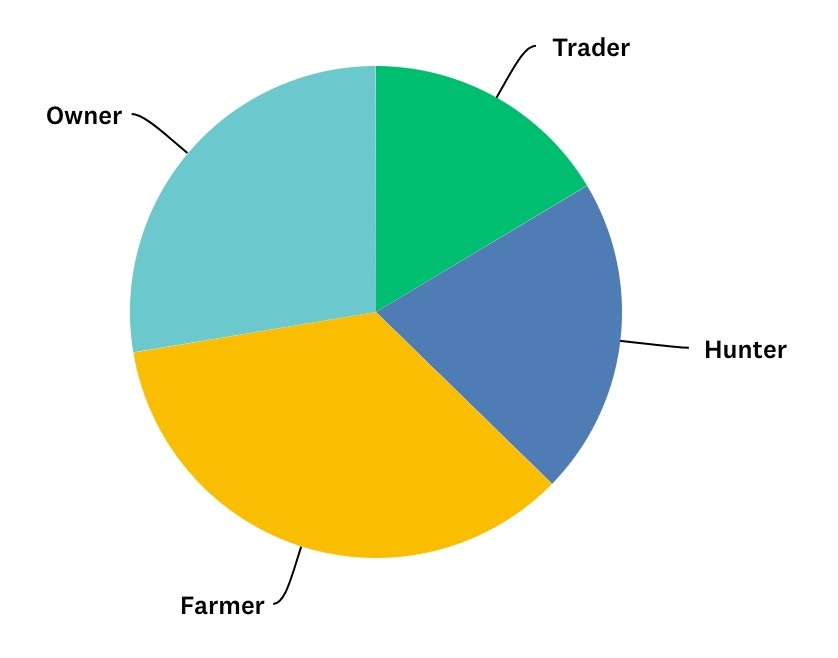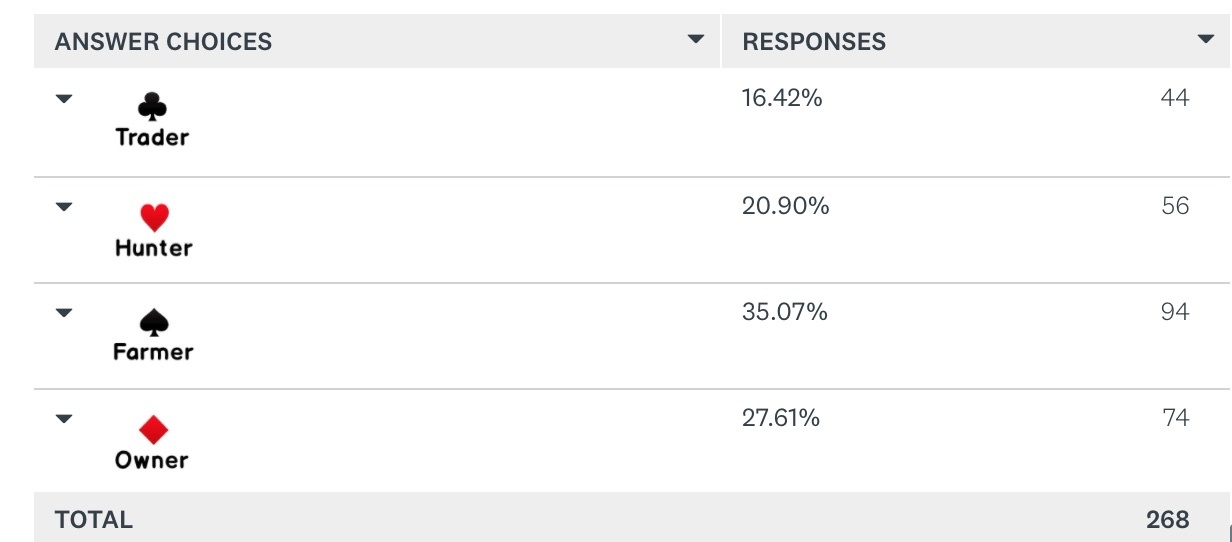There are many ways to reach success in the stock market… but just like in politics, other people’s methods are often disregarded at best, and attacked at worst. Traders think Investors are boring old stiffs while Investors think Traders are mindless morons. You often see different classes of investors mocking each other’s blogs - technical analysis articles attracting the wrath of the ‘serious investor’ while intelligent stock pitches often just plain ignored by the trading community.
I’ve long felt that this dichotomous labelling of “investors vs traders” is counter productive. It’s just like trying to shoe-horn everyone’s political views into the ‘left vs right’ political spectrum. The reality is that people’s behaviour is much more nuanced than this and it’s time we found a better lens.
So in this article I’m going to propose a more unified understanding of investor archetypes that I hope helps bridge the divide.
The Four Investor Suits
I once spent six months as a professional poker player, mostly online, but with regular excursions into real world tournaments. Multi-tabling at poker quickly becomes a grind which is why I moved on but this love of gaming has been with me throughout my life and informs my view of markets.
It was while exploring some gaming resources after some recent battles with my kids that I came across Bartle’s Taxonomy of Game Player Types - a deceptively simple system that classifies online game players as one of four archetypes (explorers, killers, achievers, socialisers). Bartle imaginatively maps these four classifications to the four suits of a card deck. It’s a very simple model, but has been very broadly adopted by gaming enthusiasts.
I swiftly realised we could adapt this model to investor types. The more I thought about it, the more I realised it could help avoid the simplistic divisiveness of the “investor vs trader” war.
So here goes.
Let us analyse investors according to 2 simple dimensions.
- Action Dimension - from ‘active’ to ‘passive’.
- Decision Dimension - from ‘systematic’ to ‘discretionary’.
Active investors like to deal frequently, often holding shares between days and months. Passive investors prefer to hold their shares over longer timeframes from months to years.
Systematic investors tend to use rule-based, objective approaches to buying and selling shares based on theory or experience. Discretionary investors tend to use their own subjective decisions when buying or…












